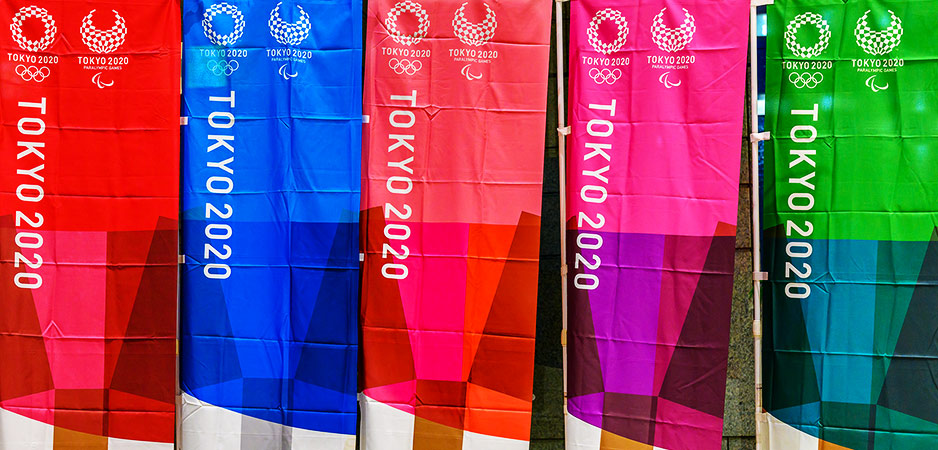Sport is often a great source of soft power, or the ability to shape the preferences of others by appeal instead of coercion or monetary incentives. The Olympic Games are a powerful tool for this type of attraction. Awarded to Germany before the Nazis came to power, the 1936 Berlin Olympics helped the regime to sell an image of an organized nation open to the world. Anti-Semitic propaganda was concealed from view, while Leni Riefenstahl recorded every single aspect of the event for her documentary, “Olympia.” With only the Soviet Union boycotting the event, the American journalist William Shirer noted in his diary, “I’m afraid the Nazis have succeeded with their propaganda.”
The 2008 Beijing Olympics were a soft-power victory for China, a momentous event that pushed to the sidelines controversies like Tibetan freedom activists protesting along the Olympic torch relay. The 2016 Rio Olympics attracted 1.17 million tourists who enjoyed the games at one of the world’s most famous beaches while Brazilians were protesting against economic corruption involving state oil company Petrobras and the political scandals that led to the impeachment of President Dilma Rousseff.
Can Chinawood Win Soft Power for Beijing?
In 1964, Tokyo became the first Asian city to host the Summer Olympics. The 2020 games, however, face an invisible challenge to turning the event into a soft-power coup for Japan. With the COVID-19 pandemic showing no sign of subsiding, hundreds took to the streets of Tokyo to protest against holding the event. “Cancel the Olympics,” they demanded, fearing that there are many variants of the coronavirus circulating in the capital, with 90% of the citizens concerned that athletes might bring more infection into the country.
Tokyo’s games are already considered the most expensive Summer Olympics in history, with a price tag of at least $25 billion. The 2019 Rugby World Cup brought a 29,4% increase in the number of tourists coming to Japan, and the country is expected to achieve a record 40 million in 2020. As a result of the pandemic, the games were postponed to 2021 and will go ahead amid a state of emergency in Tokyo. This means that events in the capital will run without spectators, while some venues around the country will be allowed to operate at 50% capacity. The exclusion of foreign fans could mean a loss of 200 billion yen ($1.8 billion).
If Not Sport, Then Culture
If the organizers manage to steer the games through without major incident and prevent the spread of COVID-19, the Tokyo Olympics will, without doubt, bring with them a soft-power legacy, although with inevitable economic loss. But Japan’s main source of soft power is its culture, bringing billions in profits. Especially prominent is MAG culture — manga, anime and games. These are an essential tool of what is called “Cool Japan,” a campaign launched by the Japanese government in 2010 to promote its cultural industry around the world. This soft-power strategy went global and got the attention of Western media when revenues from sales and royalties of Japanese cultural products soared to $12.5 billion in 2002, a 300% increase from 1992.
MAG culture is so important for Japan’s image and budget that during the Rio Olympics, when the key to the next games was passed on to Prime Minister Shinzo Abe, he surprised the world by popping out of a green drainpipe dressed as Super Mario, accompanied by a video showing athletes dressed like Hello Kitty and Doraemon. The stunt made the usually-somber politician the top trend on Twitter the next day. Years earlier, Hello Kitty was appointed Japan tourism ambassador in places like China and Hong Kong due to the popularity of the character in countries that suffered Japanese aggression at the end of the 19th century and during the Second World War.
Manga became one of Japan’s most important exports and an important gateway into Japanese culture, getting major exhibitions in places like the British Museum in London. According to a survey conducted in four European countries, the majority of readers discover manga while still at school, a time particularly important for shaping our identity and perceptions of other cultures. Japanese anime industry pulled a record of $17.7 billion in 2017, with the help of artists like Hayao Miyazaki, who won an Oscar in 2001 for “Spirited Away.”
The win served as a “wake-up call for a lot of people in the film business who had been disregarding Japanese animation for years,” says Dr. Jonathan Clements, a researcher of Japanese anime. Japan was the second-highest exporter of video games before the pandemic, representing just over 10% of all global sales worldwide in 2019. On top of that, unlike China, the world leader in video game exports, Japan has created characters that are recognized worldwide. Pokemon alone brought in $5 billion in revenue in the first five years of existence.
Korean Challenge
But even the established soft power of MAG has faced competition over these past few years. One of the most important is Hallyu (Korean Wave), the rise in the popularity of Korean culture around the world. Used in the early 1990s as part of reestablishing diplomatic relations with China, the term describes a soft power that included phenomena like K-pop and K-drama that proved as critical as traditional diplomacy.
Korean boy band BTS reached the top 10 of the Billboard 200 in 2017 with 300 million votes worldwide, generating more engagement on Twitter than artists like Taylor Swift, Beyoncé and Justin Bieber. From Psy’s global hit “Oppan Gangnam Style” to the synchronized dancing of the girl band Blackpink, K-pop is a multibillion-dollar industry that unites millions of fans in stadiums around the world and will have its own stadium in 2024 in Seoul as part of the plan to attract more tourists to the country.
Bong Joon-ho’s K-drama “Parasite” got more than 300 awards worldwide, including best picture at the Academy Awards and the Palm D’Or in Cannes last year, grossing nearly $260 million worldwide. The countries’ film industry has registered constant growth for years, with sales revenues going from 1.22 (2008) to 2.51 (2019) trillion South Korean won. Netflix is set to invest $500 million in 2021, with its Korean subscriber base nearing four million. Minyoung Kim, Netflix vice president of content for Korea, Southeast Asia, Australia and New Zealand, says that the streaming platform wants to be part of Hallyu in a “huge moment of national pride,” adding 80 original Korean shows and films to the service.
Will Hallyu be cooler than “Cool Japan” in the following years? The answer is that it’s more likely that both countries will share the leading dominance in Asia’s cultural soft power. This is a positive development for both nations given that they already shared soft-power influence when they hosted the first World Cup to be held in Asia in 2002.
Even without foreign visitors, the Tokyo games may help increase Japan’s soft power by showcasing the country’s rich culture alongside the sporting spectacle to millions around the world. The Olympics are still one of the most-watched events on global television, with US broadcaster NBC alone paying $1.275 billion for broadcasting rights per Olympiad. The International Olympic Committee estimates that 3.6 billion people watched at least one minute of the Rio 2016 games, with over 342 million viewers tuning in for the opening ceremony. Back then, the world was not living with a pandemic. In 2021, even with vaccinations rolling out, many are still favoring home entertainment. This might make the Tokyo Olympics even more popular than Rio’s, which would be a big win for Japan’s soft power.
The views expressed in this article are the author’s own and do not necessarily reflect Fair Observer’s editorial policy.
Support Fair Observer
We rely on your support for our independence, diversity and quality.
For more than 10 years, Fair Observer has been free, fair and independent. No billionaire owns us, no advertisers control us. We are a reader-supported nonprofit. Unlike many other publications, we keep our content free for readers regardless of where they live or whether they can afford to pay. We have no paywalls and no ads.
In the post-truth era of fake news, echo chambers and filter bubbles, we publish a plurality of perspectives from around the world. Anyone can publish with us, but everyone goes through a rigorous editorial process. So, you get fact-checked, well-reasoned content instead of noise.
We publish 2,500+ voices from 90+ countries. We also conduct education and training programs
on subjects ranging from digital media and journalism to writing and critical thinking. This
doesn’t come cheap. Servers, editors, trainers and web developers cost
money.
Please consider supporting us on a regular basis as a recurring donor or a
sustaining member.
Will you support FO’s journalism?
We rely on your support for our independence, diversity and quality.






